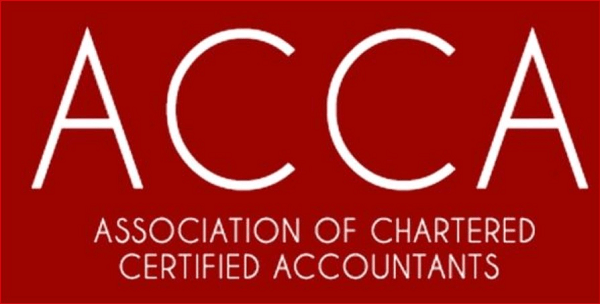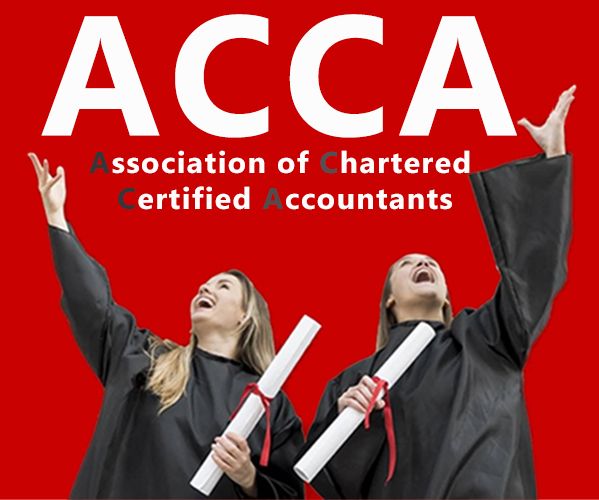The headquarters of the professional accounting organization Association of Chartered Certified Accountants (ACCA) are in London, United Kingdom. With more than 230,000 members and students in 175 nations, it is one of the largest and most prestigious accounting organizations globally.
The most complex certification provided by the ACCA is the Chartered Certified Accountant (CCA) qualification, which is one of a variety of credentials given by the organization. Anybody who wishes to pursue a career in accounting, finance, or business should have the CCA certificate since it is recognised and valued by companies everywhere.
ACCA Course Details

The ACCA qualification is divided down into three levels: Professional Accountant, Advanced Diploma in Accounting and Finance, and Foundations in Accounting and Business.
- Principles of accounting and business are laid out in Foundations in Accounting and Business. There are two tests in it: AB1: Business and Technology and FA1: Financial Accounting.
- Professional Accountant includes more complex accounting and business fundamentals in addition to business etiquette and methods for interaction. There are four tests which make up this program: AA1: Accounting and Finance Fundamentals; AA2: Managerial Accounting; AB2: Business Law and Ethics; and P1: Governance, Risk, and Ethics.
- The most advanced level of certification provided by the ACCA is the Advanced Diploma in Accounting and Finance, which includes instruction in taxation, auditing, and financial reporting. There are three tests in it: the SBL (Strategic Business Leader), the F4 (Financial Reporting and Analysis), and the P2 (Taxation).
ACCA Eligibility
Here are the eligibility requirements for the ACCA qualification:
- You must have a good understanding of English.
- You must have completed a secondary school education or equivalent.
- You must have completed a foundation level accounting qualification, such as the ACCA’s Foundations in Accounting and Business qualification.
- A relevant degree or diploma in accounting or finance.
- Relevant work experience in accounting or finance.
- A pass in the ACCA’s entrance exam.

ACCA Entrance Exams
| Exam name | Level | Eligibility | Frequency |
|---|---|---|---|
| ACCA Essentials | Foundations in Accounting and Business | No prior accounting qualification required | Available all year round |
| ACCA F1: Financial Accounting | Foundations in Accounting and Business | No prior accounting qualification required | Available twice a year |
| ACCA F2: Management Accounting | Foundations in Accounting and Business | No prior accounting qualification required | Available twice a year |
| ACCA AB: Applied Knowledge | Professional Accountant | Foundations in Accounting and Business qualification required | Available twice a year |
| ACCA AA: Applied Skills | Professional Accountant | Foundations in Accounting and Business qualification required | Available twice a year |
ACCA Syllabus
| Level | Exam name | Subject | Learning outcomes |
|---|---|---|---|
| Foundations in Accounting and Business | FA1: Financial Accounting | Financial accounting | Understand the concepts and principles of financial accounting, and apply them to prepare financial statements. |
| Foundations in Accounting and Business | AB1: Business and Technology | Business and technology | Understand the role of business in the world, and the impact of technology on business. |
| Professional Accountant | AA1: Accounting and Finance Fundamentals | Accounting and finance fundamentals | Understand the concepts and principles of accounting and finance, and apply them to solve problems. |
| Professional Accountant | AA2: Management Accounting | Management accounting | Understand the concepts and principles of management accounting, and apply them to make decisions. |
| Professional Accountant | AB2: Business Law and Ethics | Business law and ethics | Understand the legal and ethical framework of business, and apply this knowledge to make decisions. |
| Professional Accountant | P1: Governance, Risk and Ethics | Governance, risk and ethics | Understand the concepts and principles of governance, risk, and ethics, and apply this knowledge to manage risk and make decisions. |
| Advanced Diploma in Accounting and Finance | SBL: Strategic Business Leader | Strategic business leader | Understand the concepts and principles of strategic management, and apply this knowledge to make decisions. |
| Advanced Diploma in Accounting and Finance | F4: Financial Reporting and Analysis | Financial reporting and analysis | Understand the concepts and principles of financial reporting and analysis, and apply this knowledge to solve problems. |
| Advanced Diploma in Accounting and Finance | P2: Taxation | Taxation | Understand the concepts and principles of taxation, and apply this knowledge to solve problems. |
ACCA Recommended Books
- Foundations in Accounting and Business:
- ACCA F1: Financial Accounting by Kaplan Publishing
- ACCA AB1: Business and Technology by Kaplan Publishing
- Professional Accountant:
- ACCA AA1: Accounting and Finance Fundamentals by Kaplan Publishing
- ACCA AA2: Management Accounting by Kaplan Publishing
- ACCA AB2: Business Law and Ethics by Kaplan Publishing
- ACCA P1: Governance, Risk and Ethics by Kaplan Publishing
- Advanced Diploma in Accounting and Finance:
- ACCA SBL: Strategic Business Leader by Kaplan Publishing
- ACCA F4: Financial Reporting and Analysis by Kaplan Publishing
- ACCA P2: Taxation by Kaplan Publishing
Conclusion
FAQs
- Increased earning potential: ACCA members typically earn more than non-members.
- Enhanced career opportunities: ACCA members have access to a wide range of career opportunities, both in the public and private sectors.
- Professional recognition: ACCA qualifications are recognized and respected by employers all over the world.
- Continuous professional development: ACCA members are required to maintain their professional knowledge and skills by completing continuing professional development (CPD) activities.



















